
Fits
Is it illegal to carry clean fits?
It is legal to possess fits in NSW. Although it is legal to receive a fit from an authorised needle & syringe program, it is illegal to pass it on to someone else.
It’s important to be aware of what you might be carrying when you go to a needle & syringe program to pick up or return fits.
Is it illegal to carry used fits?
Possession of used needles or syringes, while not illegal, could be used as evidence of self-administration, which is a criminal offence in NSW. You are more likely to be charged with self-administration if you admit to having used the equipment to use illegal drugs.
The best approach is to dispose of them in a disposal container and return them to a needle & syringe program. Again, remember to be aware of what you might be carrying when you go to a needle & syringe program to pick up or return fits.
Is it illegal to throw used fits in the bin?
While it isn't illegal to dispose of injecting equipment in household waste in NSW people are strongly encouraged to use appropriate sharps waste disposal bins. Placing injecting equipment in household waste exposes council workers and waste contractors to the risk of needle stick injuries.
It is illegal to leave a syringe in a public place. A person who deposits fits in a public place is guilty of the offence of ‘aggravated’ littering, a more serious offence than dropping ordinary rubbish. The maximum fine for depositing litter such as syringes is $3,300.
All used fits need to be disposed of at a community waste disposal bin. For locations call RUSH on 02 9388 5110
Overdose.
Will the police be called when I call an ambulance for an overdose?
No, they will only be called if:
- There is reasonable suspicion by the Ambulance Service call taker of danger to attending ambulance officers
- Attending staff (ambulance officers) requests the police (only if danger or threat of danger is present)
- The person requesting the ambulance requests police presence
- Another party contacts the police (not the ambulance service or the person calling the service)
- The overdose becomes fatal and the person dies (the police will be called if there is a death no matter what the cause)
If someone is unconscious they need an ambulance. Try to make sure there is no shouting or panic in the background when you dial.
RUSH can supply Naloxone to clients; either a nasal spray (Nyxoid) or intra-muscular injection (Prenoxad).
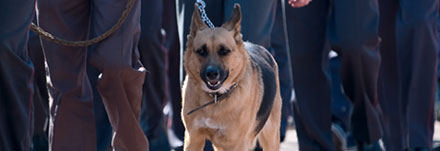
Police Searches
Police must base their searches on ‘reasonable suspicion’.
Police should tell you why they want to search you. If they don’t, make sure you ask. You have the right to ask for the officer’s name, badge number and station.
Police can stop, search and detain you if they believe you are carrying:
- stolen or illegally obtained items;
- items police believe may be used illegally (e.g. tools that can be used to break into houses); or
- drugs, knives or weapons.
Police can pat you down, look in your pockets and bags and search your car. Police are not allowed to strip search you in public. If you refuse to be searched, the police may arrest you and use force to search you. Ask for someone to be present during the search.
Strip searches
Strip searches are a major invasion of your privacy. Police can strip search you after you are arrested, if they have reason to suspect you are:
- hiding important evidence of a crime;
- hiding something dangerous; or hiding drugs or weapons.
Police should tell you why you are being strip searched.
- You should only ever be searched by an officer of the same sex as you.
- Police are not allowed to touch your body during a strip-search.
- Police are not allowed to search inside your body. If this happens, you should make a complaint straight away.
- You should be strip searched in a private place.
Remember—a strip search is an invasion of your privacy, it is a power which police must exercise very carefully and responsibly.
Searches by sniffer dogs
NSW Police use sniffer dogs to search people for illegal drugs at pubs and clubs that serve alcohol, at sporting events, concerts and parades, and on public transport.
- Police do not need a warrant to do these searches. Police can also use sniffer dogs to search people who they reasonably suspect of committing drug offences without a warrant.
- Police must take all reasonable precautions to prevent sniffer dogs from touching the people they search.
Complaints about searches
- If you believe police haven’t used their search powers properly or followed the correct search procedures, you can make a complaint.
This information was gathered from different sources to be used as a guideline about your rights. It should not be used as legal advice.
For detailed advice, contact:
The Legal Aid Commission – 02 9219 5000
Additional information can be found at:
NSW Users & Aids Association Inc – 1800 644 413 / www.nuaa.org.au
The Australian Injecting & Illicit Drug Users League – www.aivl.org.au

What should I do if I am being questioned by the police?
You don’t have to answer police questions, even if you’ve been arrested and taken back to the station. If police ask you to go to the police station to answer questions, you don't have to go unless you are arrested.
Always get legal advice before taking part in a police interview or giving a formal statement. You can ask to call Legal Aid on 1300 888 529.
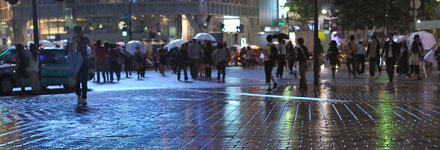
Being ‘moved on’
In public places, on the streets, at the shopping centre, etc. you have the right to hang out where you like, with anyone you like, so long as you’re not harming other people or damaging property.
However, police do have the power to ask you to ‘move on’ if they believe you are buying or selling illegal drugs. If they do ask you to move on, you have the right to know:
- Why police are giving you a direction, or making a request
- What the direction or request means you have to do, or not do.
If police make a direction or request, you can simply agree to it and avoid more hassles. Remember that it’s an offense not to obey a lawful police direction. If you think the request or direction is unfair, be sensible and stay calm. Don’t swear or get violent – if you do, police will then have the power to arrest and charge you.
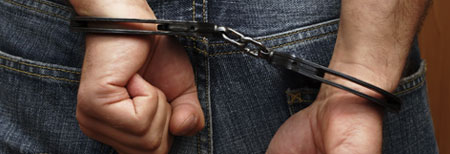
Resisting arrest, and why you shouldn’t
If you struggle or attempt to run from the police once they’ve arrested you, you can be charged with resisting arrest or escaping lawful custody. This is an additional charge which can stand even if other charges against you are dropped. It can also lead to other, more immediate problems – such as the use of additional force to subdue you.
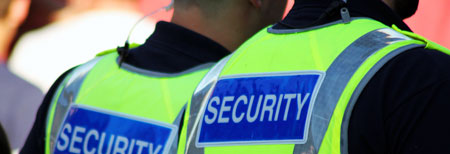
Security guards
Security guards have no more powers than ordinary citizens. They have no power to search or question you. A security guard cannot:
- Search you unless you agree;
- Arrest or detain you unless they see you commit a crime;
- Force you to sign anything;
- Force you to go anywhere unless they are detaining you until police arrive;
- Force you to be photographed; or
- use excessive force.
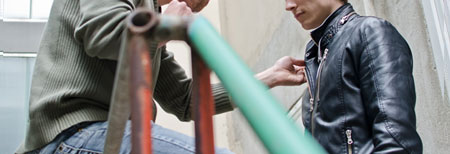
Consorting
Consorting is the offence of habitually being in the company of ‘specified other persons or classes of person who are criminals, either by reputation or conviction’. It is an extraordinarily broad offence that relies almost entirely on police discretion to control its scope.
Under the current offence in New South Wales it must be proved that:
- A person is consorting (associates, accompanies) with at least two convicted offenders (whether on the same or separate occasions) after having been given an official warning on at least 2 occasions (with no time limit between these occasions).
It is no defence to prove that the consorting was either innocent or for good reason. The only reasonable circumstances for consorting are:
- Consorting with family members,
- Consorting that occurs in the course of lawful employment or the lawful operation of a business,
- Consorting that occurs in the course of training or education,
- Consorting that occurs in the course of the provision of a health service,
- Consorting that occurs in the course of the provision of legal advice,
- Consorting that occurs in lawful custody or in the course of complying with a court order.
